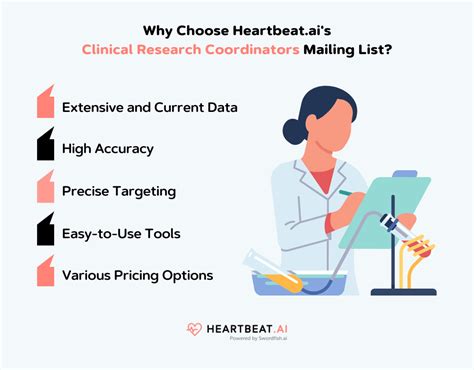What is a Clinical Research Coordinator (CRC)?
A clinical research coordinator (CRC) is a medical professional responsible for the planning, implementation, and management of clinical research studies. They work closely with research teams, investigators, and participants to ensure the smooth and ethical conduct of clinical trials.

Essential Responsibilities
CRCs play a pivotal role in various aspects of clinical research, including:
- Recruitment and Enrollment: Identifying and enrolling potential participants who meet the eligibility criteria for specific studies.
- Study Protocol Implementation: Ensuring that all aspects of the study protocol are followed accurately and consistently.
- Data Collection and Management: Collecting, verifying, and managing research data, ensuring its accuracy and completeness.
- Patient Care and Follow-up: Monitoring participants’ health and well-being throughout the study, providing support and education.
- Regulatory Compliance: Adhering to federal and international regulations governing clinical research, ensuring the safety and protection of participants.
Skills and Qualifications
CRCs require a strong foundation in the following areas:
- Education: Bachelor’s or Master’s degree in health sciences, nursing, or a related field.
- Certifications: Certification from recognized organizations such as the American Association of Clinical Research Professionals (AACRP).
- Technical Proficiency: Proficiency in using clinical research software and data management tools.
- Communication and Interpersonal Skills: Excellent communication, interpersonal, and problem-solving abilities.
- Ethics and Compliance: Strong understanding of research ethics and regulatory requirements.
Industry Outlook
The demand for CRCs is projected to grow significantly in the coming years due to:
- Rising Prevalence of Chronic Diseases: The increasing prevalence of chronic diseases, such as cancer and diabetes, requires extensive clinical research.
- Government Funding: Governments are investing more in clinical research to address pressing health issues.
- Biotechnology Advancements: Advancements in biotechnology and personalized medicine have led to the development of new therapies and treatments, necessitating more clinical trials.
Career Path
CRCs can progress within the field through the following career path:
- Assistant Clinical Research Coordinator: Supports the CRC in study implementation and data management.
- Clinical Research Coordinator: Manages and conducts clinical studies independently.
- Clinical Research Manager: Supervises CRCs and oversees multiple clinical trials.
- Director of Clinical Research: Leads clinical research operations within an organization.
Impact on Medical Innovation
CRCs play a crucial role in advancing medical innovation by:
- Facilitating Clinical Research: Enabling the conduct of clinical trials that lead to new therapies, treatments, and preventive measures.
- Improving Patient Outcomes: Ensuring the safety and well-being of study participants and contributing to the development of better treatments for patients.
- Expanding Medical Knowledge: Supporting the generation of new medical knowledge through the collection and analysis of research data.
How to Become a Clinical Research Coordinator
- Obtain a Degree: Earn a bachelor’s or master’s degree in health sciences, nursing, or a related field.
- Gain Experience: Volunteer or work in research settings to develop practical skills.
- Obtain Certification: Consider obtaining a certification from AACRP or similar organizations to enhance your credibility.
- Network: Attend industry events and connect with professionals in the field.
- Apply for Positions: Search for CRC roles in hospitals, universities, and pharmaceutical companies.
